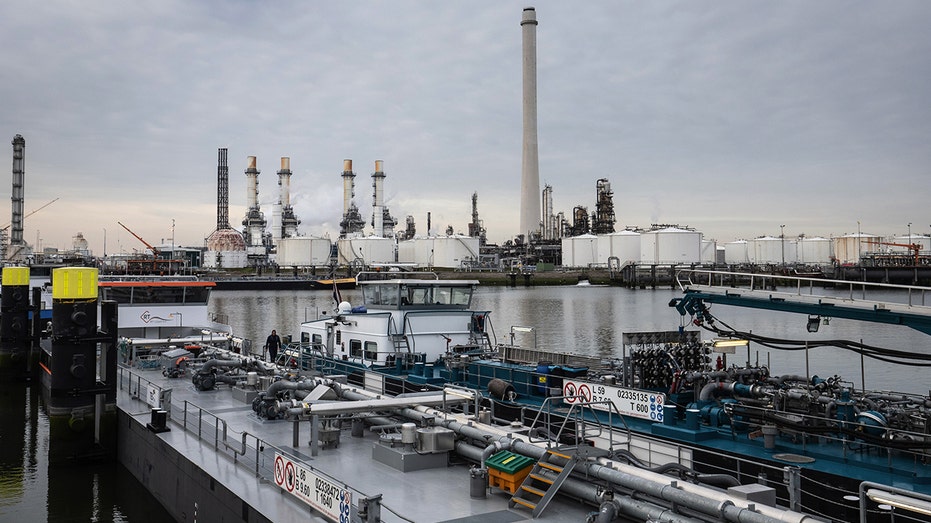Netherlands join Germany, Austria, Italy in reverting to coal amid Russia’s invasion of Ukraine
Biden has no rational plan to solve gas crisis: Rep. Westerman
House Natural Resources Committee ranking member reacts to the mixed messaging surrounding the president’s trip to Saudi Arabia on ‘The Evening Edit.’
The Netherlands is joining other European nations in reverting to coal amid an energy crisis provoked by Russia’s invasion of Ukraine.
This week, the Netherlands said restrictions on power stations fired by coal would be lifted. Previously, the fossil fuel accounted for just a third of output.
FILE: Chemical tanker barges moored near silos and refining towers at the Royal Dutch Shell Plc Pernis refinery in Rotterdam, Netherlands, on Tuesday, April 27, 2021. (Peter Boer/Bloomberg via Getty Images / Getty Images) "The cabinet has decided to immediately withdraw the restriction on production for coal-fired power stations from 2002 to 2024," Dutch climate and energy minister Rob Jetten told reporters, adding that the decision had been made in preparation with other European countries. The government had been phasing out the use of coal to generate power by allowing coal-fired power stations to operate only to a maximum 35% of their capacity in recent years as it aims to transition to sustainable energy to cut greenhouse gas emissions. RUSSIA ENERGY EXPORTS TO CHINA SOAR, DISPLACING SAUDI ARABIA AS BEIJING'S TOP SUPPLIER "The risk of doing nothing is too great," Jetten said as he also appealed to businesses and homeowners to do all they can now to rein in their use of gas to prevent shortages in the winter. Europe has been scrambling to ween itself off of Russian energy amid the ongoing war in Ukraine. Austria, Germany, and Italy have all signaled that coal-fired power plants could provide a short-term solution given Europe’s heavy reliance on Russian energy. Russia's Gazprom announced last week that it was sharply reducing supplies through the Nord Stream 1 pipeline to Germany for what it said were technical reasons. The German government says the move appears to be politically motivated. CLICK HERE TO GET THE FOX BUSINESS APP On Sunday, Economy Minister Robert Habeck said that Germany will try to compensate for the move by allowing increased burning of coal, a more polluting fossil fuel. Habeck, a member of the Green party, said the move was "bitter" but "simply necessary" to lower gas usage. The Associated Press contributed to this report. Source: Read Full Article

